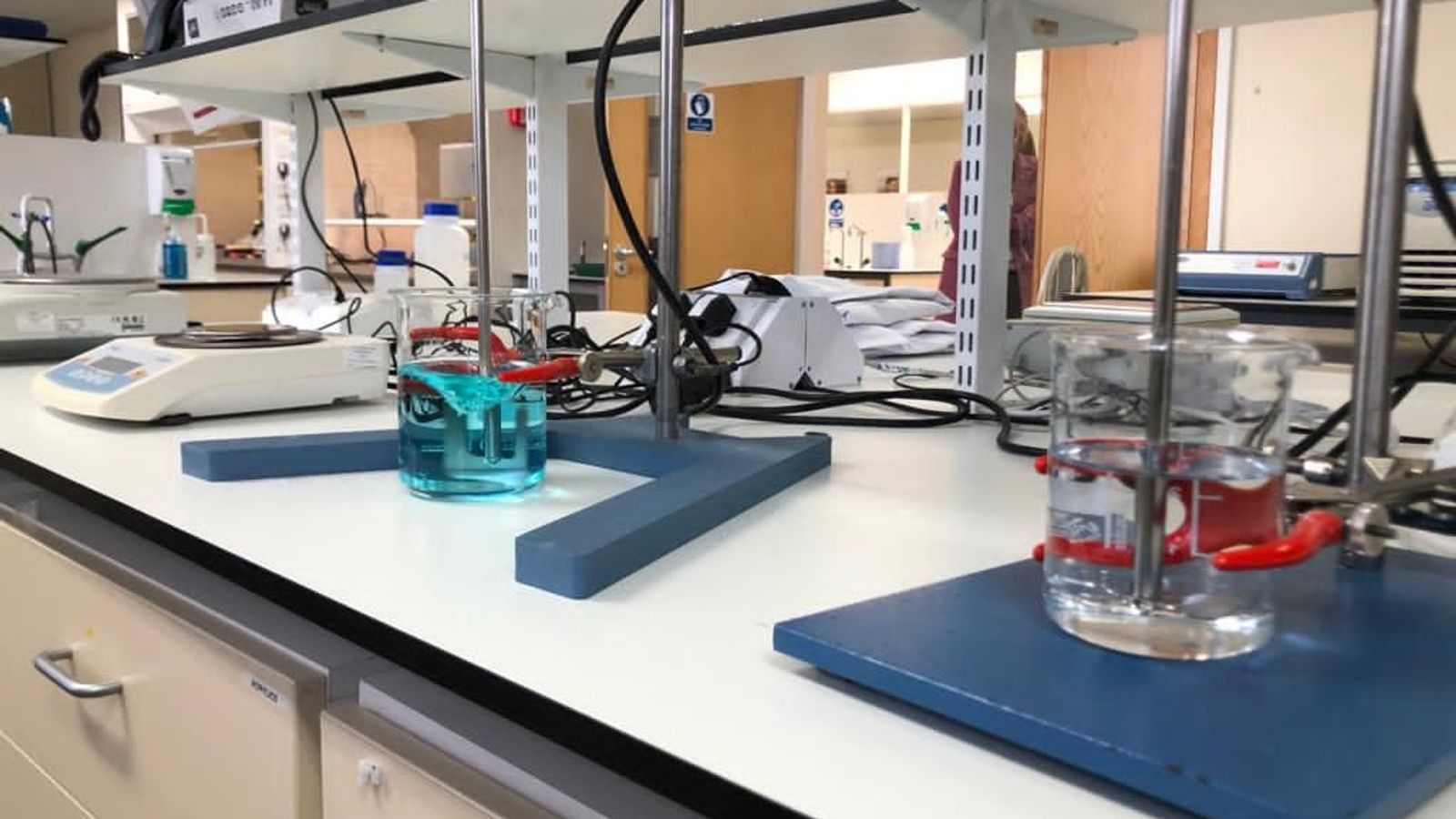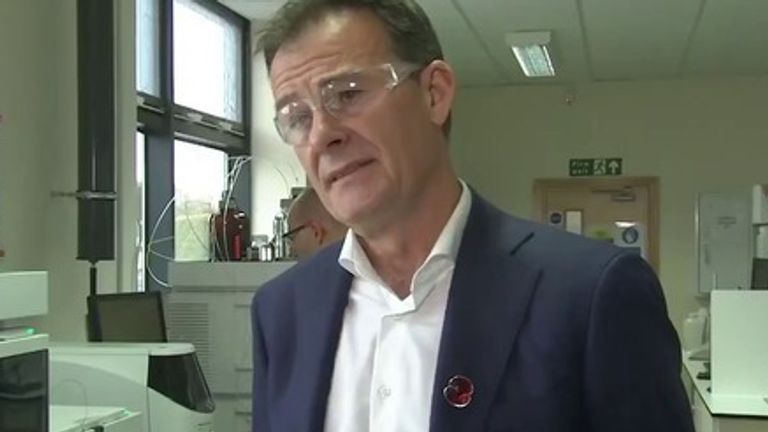The boss of the British company supplying a crucial ingredient of the Pfizer-BioNTech COVID-19 vaccine has warned that avoiding Brexit border disruption will be “a crucial step” in ensuring it is available to millions of people.
Yorkshire-based Croda International has provided a key chemical element of the vaccine to Pfizer in the trial phase, and has won a five-year contract that will see it deliver materials for 1.3 billion doses next year alone, worth around £75m.
Distributing the doses is a huge challenge and, deal or no-deal, the UK will have new customs controls from 1 January.
With the government warning of border delays of up to 48 hours, Croda’s chief executive Steve Foots told Sky News that Brexit poses a risk.
“The worry of course, the last thing we need, is a problem with a lack of an agreement, and you’ve got friction at the borders, and I’m sure the UK government are acutely aware of this,” he said.
“We must make sure that the vaccine doesn’t have any problems getting into the UK, into the supply chain, or even the practical issues of refrigerant technologies and everything else. They could be products that are needed for the UK that are sourced abroad, so making sure that we are free from friction at the borders is is a crucial step for the vaccine.”
The warning comes 50 days before the Brexit transition period ends and with negotiations continuing on key areas to unlock a trade deal.
The government said on Thursday it was launching a task force to help business prepare, a move met with some scepticism given the looming deadline.
Croda has been working on the Pfizer-BioNTech vaccine trial since its inception, using technology developed by its US subsidiary Avanti which will be mass produced in the UK and America.
It produces polar lipids, material that acts as the ‘excipient’ or delivery mechanism for the active ingredient in the vaccine, helping ensure it is as stable and effective as possible.
Following the success of the initial results, Mr Foots said that scaling up production from a 40,000-strong trial to produce and distribute 1.3 billion doses next year poses a major challenge.
“The public statements from Pfizer will tell you that they’re not there yet, there’s the safety clearance, which comes in November, hopefully, and then the big job through innovation is to scale up through the supply chain,” he said.
“We definitely have the quantities available for next year’s vaccine for Pfizer, they’re talking about 1.3 billion doses, and we’re ready to be able to supply that.
“But our mind is beyond next year and making sure we’ve got insurance in the supply chain to scale this up further, so we’re investing heavily in our units and factories running the UK, and one in the US.”
Croda was founded in Yorkshire 95 years ago and is still based in the East Riding.
It began life producing lanolin, extracted from sheep wool, and supplies chemicals to household name cosmetics companies as well as those in pharmaceuticals and healthcare.
Mr Foot said its involvement in the COVID-19 vaccine was a proud moment for staff.
“We’re a proud organisation with strong roots, we’re quite low profile, we keep our feet on the ground, but to see this come through this week, people are walking with their chests puffed out and a smile on their faces,” he said.
“There’s a flurry of emails from around the world, with people really proud to be involved in the biggest health issue of our time. It’s a fantastic opportunity.”


